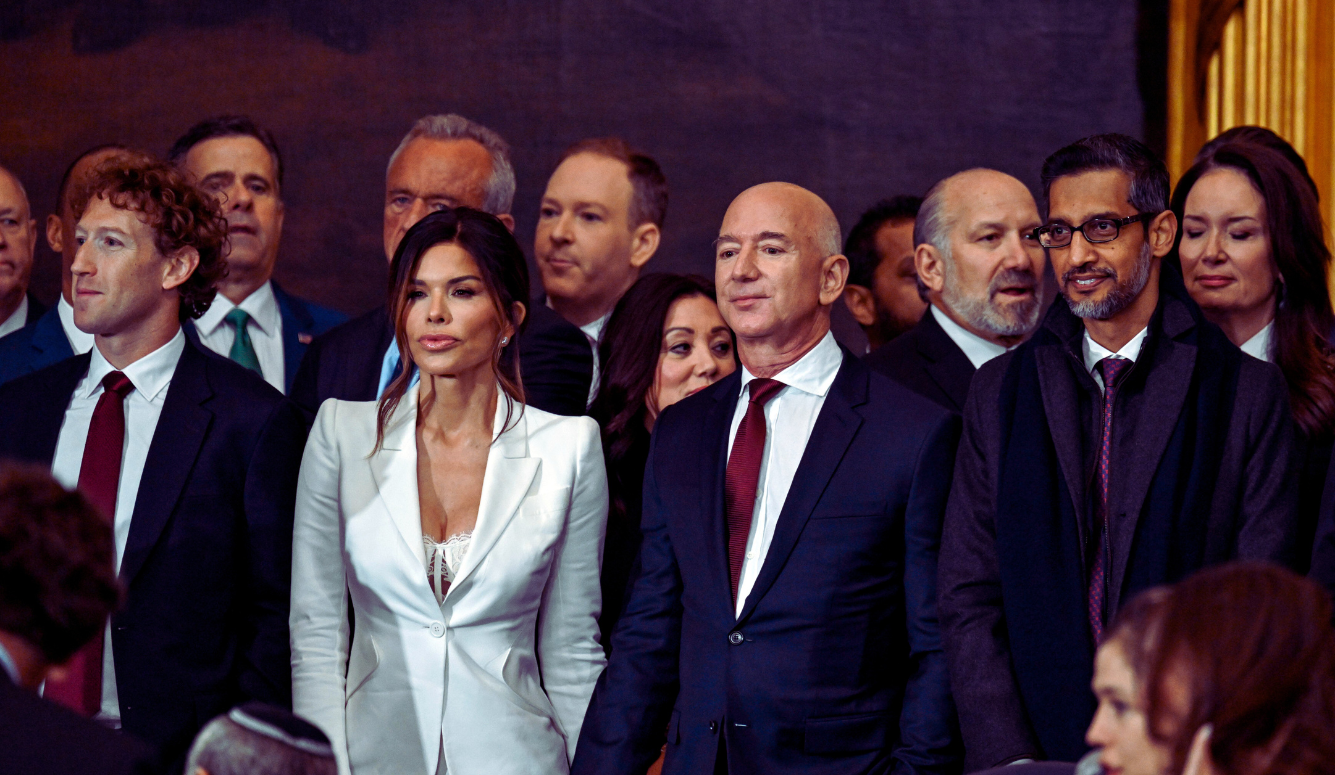Politics
The Changing Politics of Oligarchy
Liberal democracies need to restore a climate of entrepreneurial opportunity and competition.

In American politics, the main beneficiaries of “dark money” have in recent years tended to be Democrats. Google representatives were reported to have visited the White House at least 427 times during Barack Obama’s two terms. And in 2024, big spenders like Bill Gates, Reid Hoffman, Marc Benioff, Alex Soros, James Murdoch, Michael Bloomberg, and various donors from Wall Street helped Kamala Harris raise over US$1.5 billion for her campaign, the highest figure in history. This may be starting to change, as a number of powerful Silicon Valley billionaires like Elon Musk and Peter Thiel have shifted their money to the populist Republican Party.
However, political shifts like these are less important than the unprecedented degree of control that a handful of people and institutions enjoy over our communications, finances, consumer choices, and culture. In recent decades, the influence of billionaires on both of America’s two main political parties has grown. The Supreme Court’s 2010 Citizens United ruling, which essentially ended any meaningful control over campaign spending, only accelerated this trend. In 2024, election spending, in real dollars, is estimated to have been more than twice what it was two decades ago.
Political shifts...are less important than the unprecedented degree of control that a handful of people and institutions enjoy over our communications, finances, consumer choices, and culture.
According to Pew Research, eighty percent of Americans now believe that wealthy donors have too much power, and they are right. Google and Apple account for nearly ninety percent of all mobile browsers worldwide, while Microsoft, Android (Google), and iOS (Apple) account for roughly the same share of all operating-system software. Three tech firms now account for two-thirds of all online advertising revenue, which in turn accounts for the vast majority of all ad sales. To find historic parallels for this kind of dominance, you have to go back to the Gilded Age, an era of money men and monopolists that lasted from about 1870 until the early 1900s.
The rise of very wealthy liberal tech entrepreneurs caused many commentators on the Right to worry that American politics would soon be dominated by an alliance of the Democratic Party and major tech firms such Meta, Google, Apple, Amazon, and Microsoft. That convergence of interests, they feared, would impose a radical progressive agenda on much of America and close down dissent across the internet and social media. Even the ex-wives, siblings, and children of tech oligarchs were now accruing enough money to become reliable funders of the Left’s agenda.
Mackenzie Scott has donated over 17.3 billion dollars of her and Bezos' divorce settlement. She just released a 2024 update.
— Alex (@notcomplex_) March 20, 2024
So, where is the money going?
Top focus area: Race and ethnicity (39%)
Bottom focus area: Art (1-2%)
Here's the giving by focus area:
Thread 🧵 pic.twitter.com/F7QPXykpdF
To right-wing commentators, Trumpist populism represents a welcome challenge to oligarchic power—an unforeseen development that they believe is changing the course of history and restoring “masculine heroism” to the national stage. But much of this change is illusory. After all, Donald Trump’s backers in Wall Street and Silicon Valley benefit from the same corporate concentration of the economy, and while the politics of oligarchic elites may be changing, it is their influence itself that remains the larger and more pressing problem. Just as feudal lords gave to the church while they violated biblical injunctions, tech oligarchs are more interested in power than ideas. Technology is just the means to secure it.





